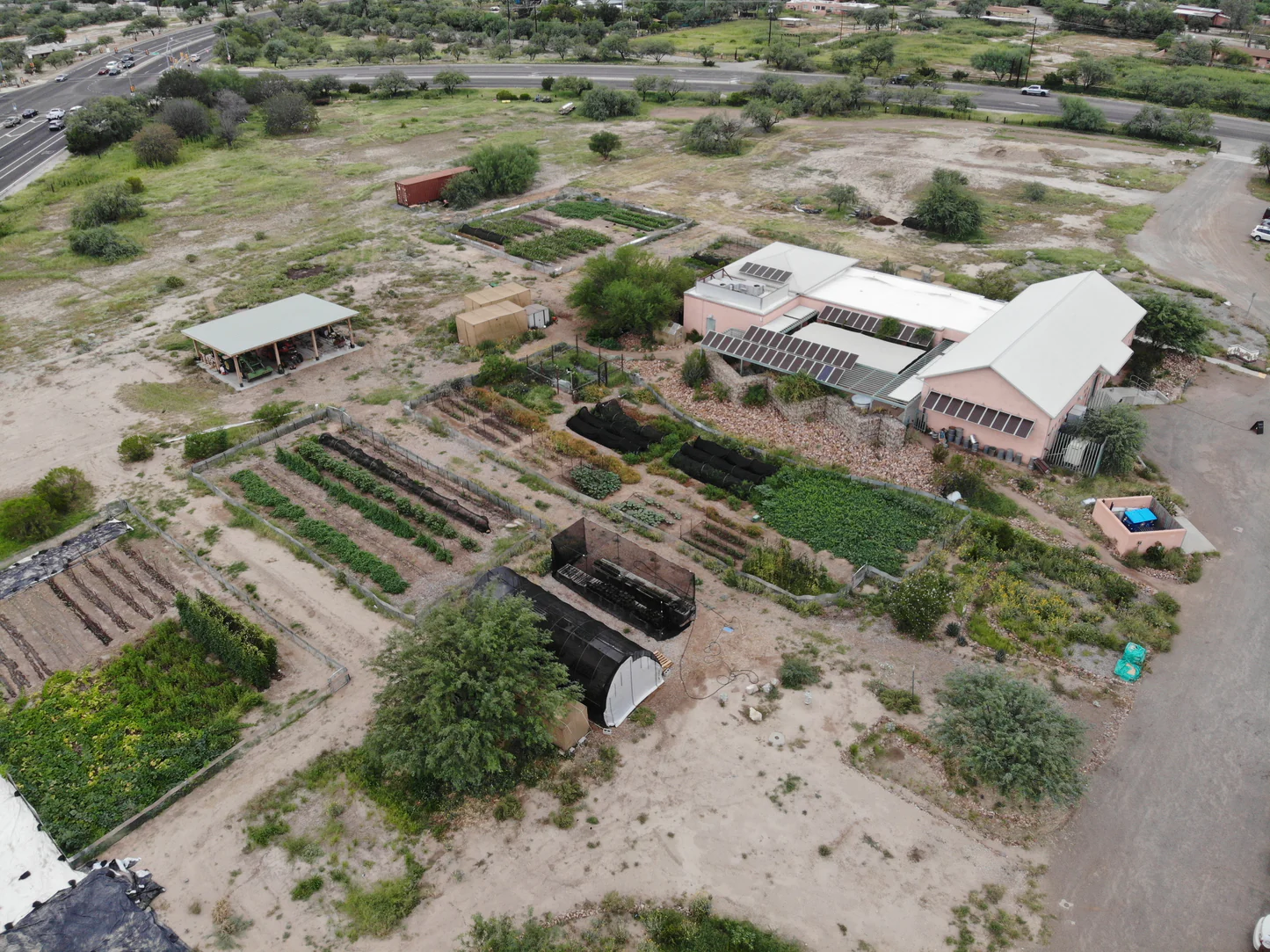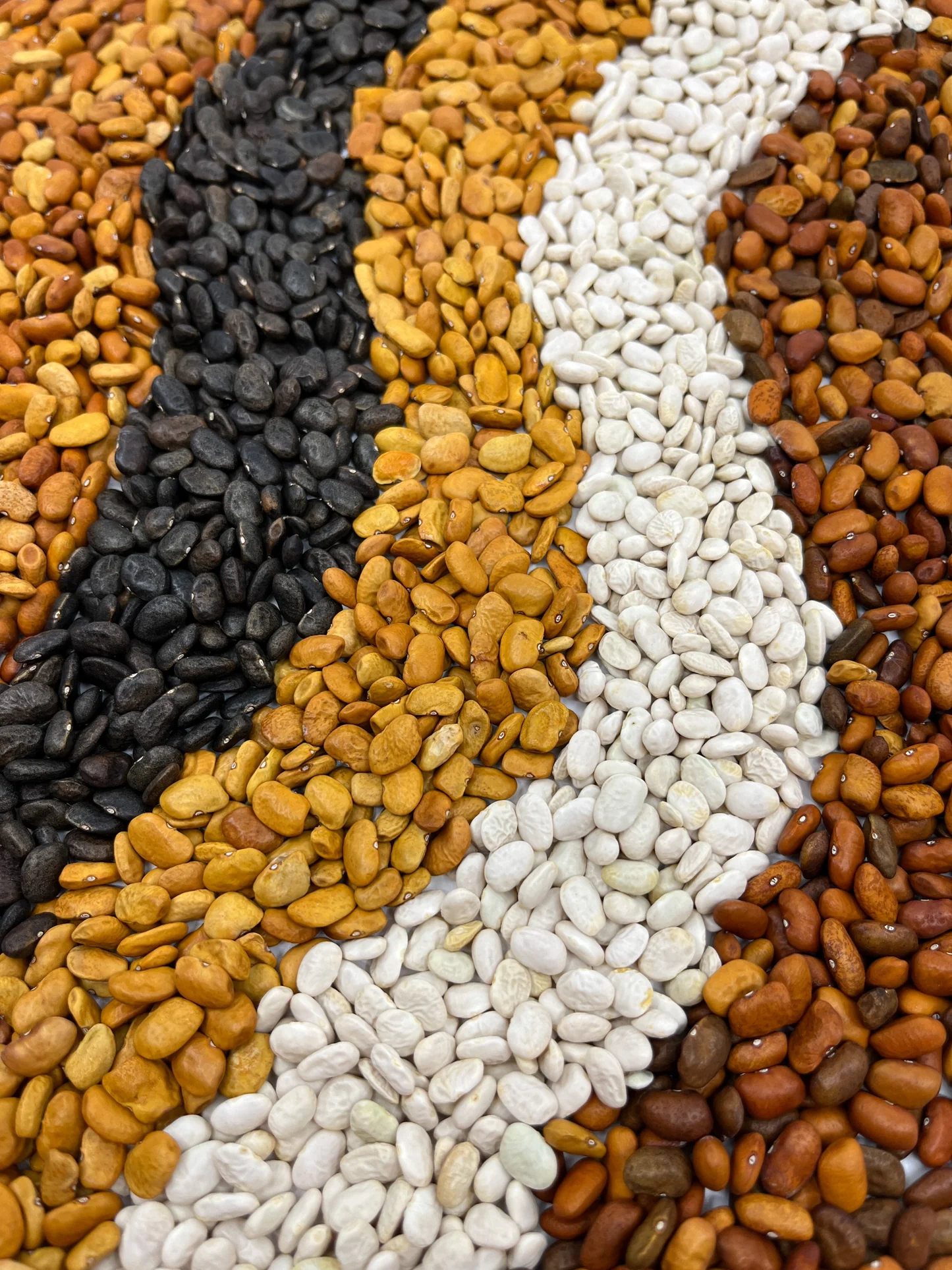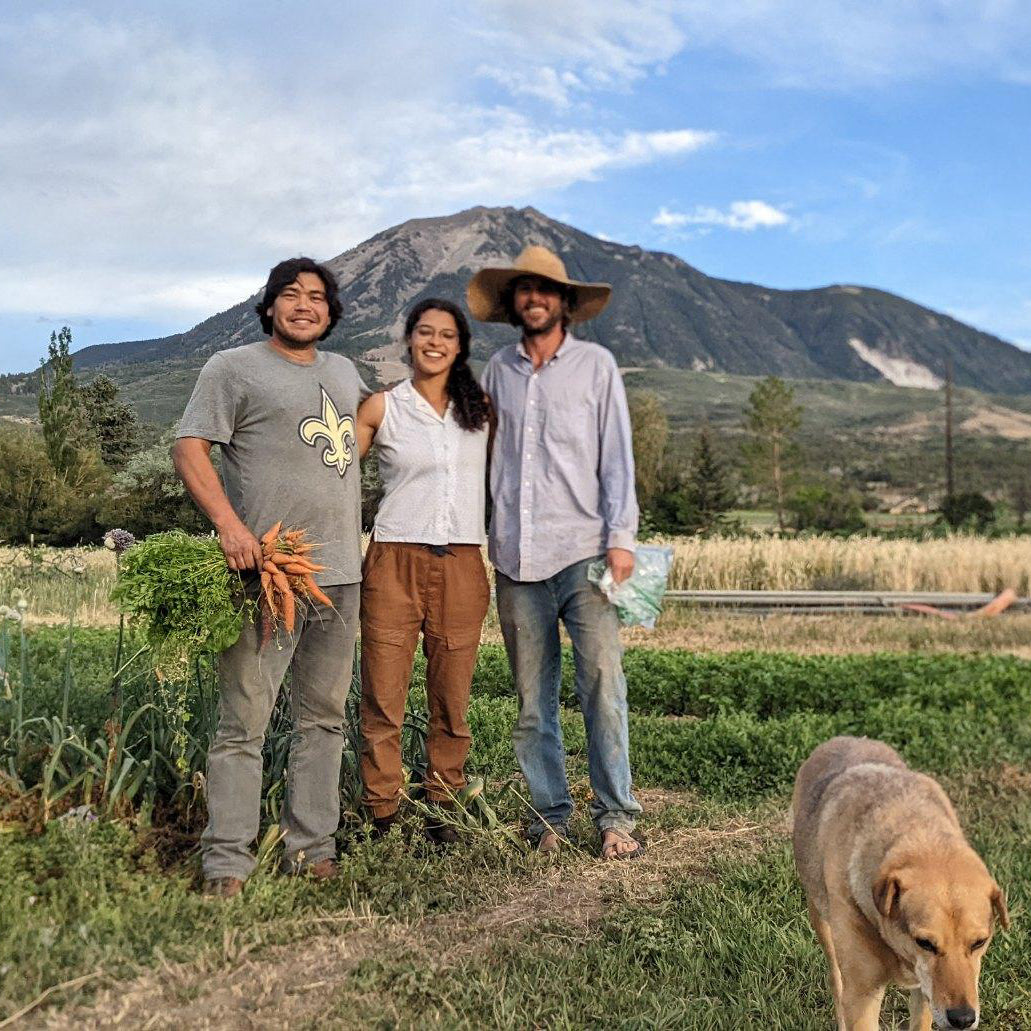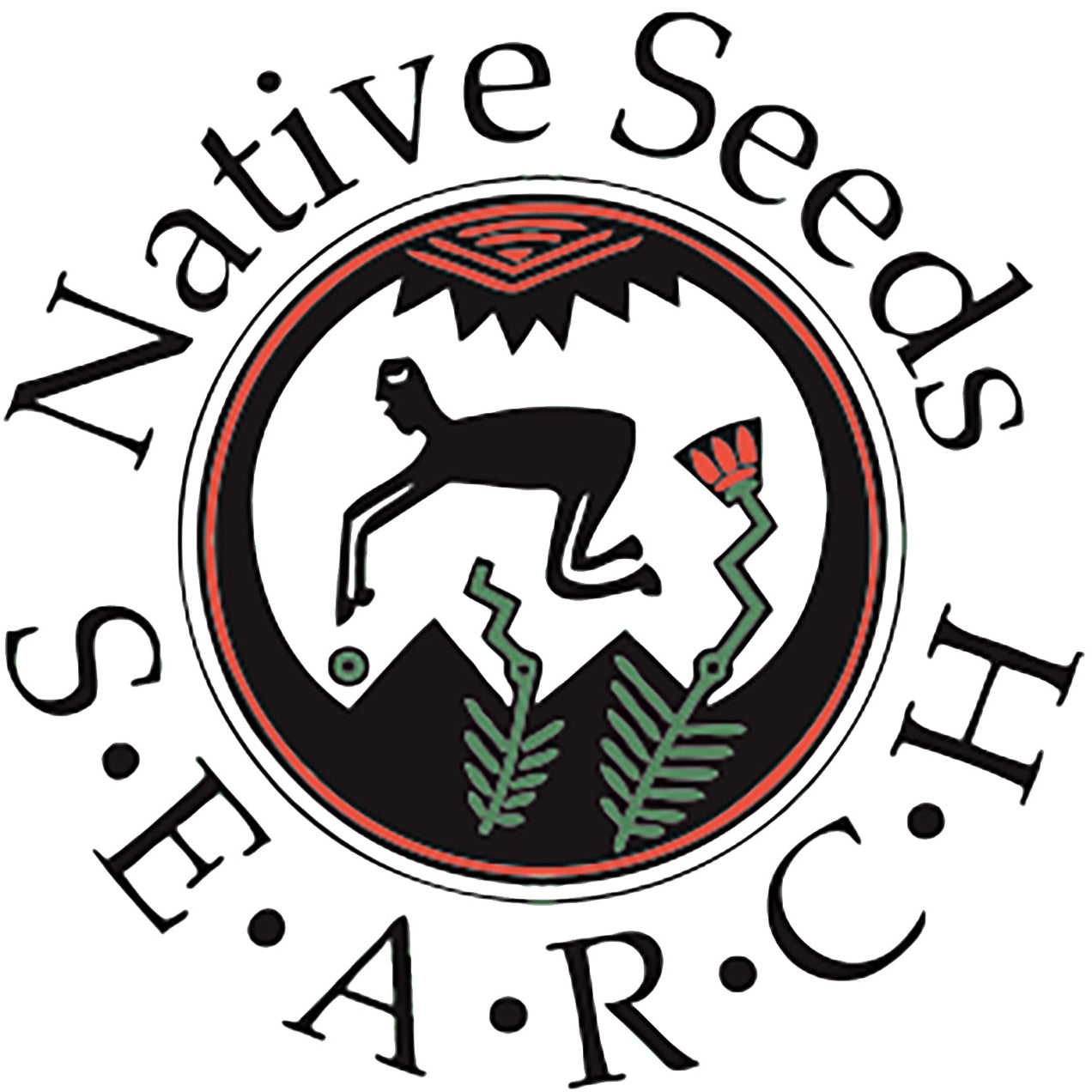This store requires javascript to be enabled for some features to work correctly.
-
BUY SEEDS
- Popular Warm Season Varieties
- Popular Cool Season Varieties
- Gift Card
- Garden and Seed Saving Supplies
- 2025 Seedlisting
- Monsoon Collection
- Amaranth
- Arugula
- Beans
- Beets
- Broccoli
- Brussels Sprouts
- Cabbage
- Carrots
- Chiles/Peppers
- Chiltepines (Wild Chiles)
- Corn
- Cotton
- Cowpeas/Black-Eyed Peas
- Cucumbers
- Devil's Claw
- Eggplant
- Gourds
- Greens - Cool Season
- Greens - Warm Season
- Herbs
- Kale
- Lettuce
- Luffa
- Melons
- Mustards
- Okra
- Onions and Garlic
- Panic Grass
- Parsnips
- Peas
- Radishes
- Sorghum
- Squash
- Sunflowers
- Swiss Chard
- Tobacco
- Tomatillos
- Tomatoes
- Turnips
- Watermelons
- Wheat
- Wildflowers
- Crop Wild Relatives
-
BUY SEEDS
- Popular Warm Season Varieties
- Popular Cool Season Varieties
- Gift Card
- Garden and Seed Saving Supplies
- 2025 Seedlisting
- Monsoon Collection
- Amaranth
- Arugula
- Beans
- Beets
- Broccoli
- Brussels Sprouts
- Cabbage
- Carrots
- Chiles/Peppers
- Chiltepines (Wild Chiles)
- Corn
- Cotton
- Cowpeas/Black-Eyed Peas
- Cucumbers
- Devil's Claw
- Eggplant
- Gourds
- Greens - Cool Season
- Greens - Warm Season
- Herbs
- Kale
- Lettuce
- Luffa
- Melons
- Mustards
- Okra
- Onions and Garlic
- Panic Grass
- Parsnips
- Peas
- Radishes
- Sorghum
- Squash
- Sunflowers
- Swiss Chard
- Tobacco
- Tomatillos
- Tomatoes
- Turnips
- Watermelons
- Wheat
- Wildflowers
- Crop Wild Relatives
-
BUY SEEDS
- Popular Warm Season Varieties
- Popular Cool Season Varieties
- Gift Card
- Garden and Seed Saving Supplies
- 2025 Seedlisting
- Monsoon Collection
- Amaranth
- Arugula
- Beans
- Beets
- Broccoli
- Brussels Sprouts
- Cabbage
- Carrots
- Chiles/Peppers
- Chiltepines (Wild Chiles)
- Corn
- Cotton
- Cowpeas/Black-Eyed Peas
- Cucumbers
- Devil's Claw
- Eggplant
- Gourds
- Greens - Cool Season
- Greens - Warm Season
- Herbs
- Kale
- Lettuce
- Luffa
- Melons
- Mustards
- Okra
- Onions and Garlic
- Panic Grass
- Parsnips
- Peas
- Radishes
- Sorghum
- Squash
- Sunflowers
- Swiss Chard
- Tobacco
- Tomatillos
- Tomatoes
- Turnips
- Watermelons
- Wheat
- Wildflowers
- Crop Wild Relatives
Our Vision
We envision a future where arid-adapted and traditional crops are abundant in the gardens, farms, and kitchens of our region; where Indigenous seeds are in the hands of Indigenous growers, and all communities are supported in keeping their unique seeds and agricultural heritages alive.

Who We Are
For more than four decades, Native Seeds/SEARCH (NS/S) has stewarded the seeds of the desert Southwest and Mexico. Founded in 1983 in response to the concern of farmers, gardeners, Indigenous community members, and conservationists about the devastating loss of seed diversity, NS/S now conserves more than 1,800 regional seed varieties in a climate-controlled seed bank. Our mission is not just the preservation of seeds for the future, but also their distribution today, prioritizing communities of our desert region who have stewarded the seeds for time immemorial.

The Collection
The seed varieties that NS/S stewards are uniquely adapted to the arid landscapes that extend from southern Colorado to central Mexico. They have been selected over generations by Indigenous farmers and other agrarian communities to adapt to local growing conditions, developing a greater resilience to higher temperatures and lower rainfall. The varieties we steward are tied to the cultural heritage and farming knowledge of more than 50 Indigenous communities, as well as more recent settlers like Spanish missionaries, Mexican communities and Mormon homesteaders. While many seeds have become rare and endangered, some are increasingly grown and enjoyed today. These seeds represent and weave the unique history and cultural fabric of our Southwest region.
While NS/S also conserves crop wild relatives, the ancestral plants of domesticated crops, the organization is best known as a source for agricultural seeds. Corn, beans, and squash are at the heart of Southwestern Indigenous food systems, and they are the heart of the NS/S seedbank. The collection also includes chiles, melons, amaranth, and other traditional crops, along with plants for ceremony and craft like gourds and tobacco. These seeds and the knowledge of how to grow them represent sophisticated adaptations to the challenges of farming in the desert.

How We Grow
Each growing season NS/S regenerates a portion of the collection at different sites: our Conservation Center gardens in Tucson and in partnership with numerous regional, small farmers. A portion of harvested seed is returned to long-term cold storage and the surplus is distributed through retail and free seed sharing programs for community and school gardens and Indigenous communities. Communities with cultural and historical connections to the seeds are prioritized so that these seeds may continue to exist and flourish in these communities. NS/S strives to have our leadership team reflect those we serve, and consists of community gardeners, farmers, and Indigenous people connected to the collection. Their experiences and community connections directly guide our policy and programming.

Seeds & Connection
NS/S emerged in response to a growing disconnect from farming and traditional foodways, resulting in the loss of seeds. This loss was most profound amongst the region’s Indigenous communities due to the historic colonial losses of land and water access, physical displacement, and racial and environmental discrimination – issues that are still faced today. Today, NS/S is a model for regionally serving and publicly accessible seed banks and is a resource for gardeners, farmers, community gardens, and Indigenous growers to cultivate a vibrant, climate-adapted, and culturally connected food system.

Cycle of Stewardship
This graphic from our new strategic plan illustrates the reciprocal cycle through which seeds from the NS/S collection are regenerated and shared. Partner farmers and community organizations who receive seeds actively contribute to this cycle of regeneration—not only by returning seeds to the NS/S seed bank, but also by stewarding and sharing them within their communities.
